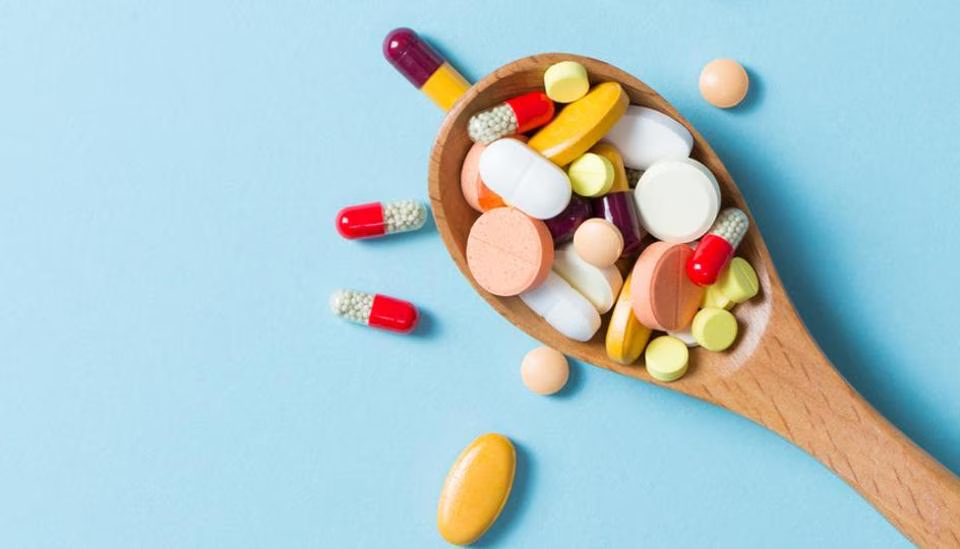
Related products
Fat-soluble vitamin K plays an enormous role in the body, as it is essential for both blood clotting and bone health. However, many individuals still struggle to determine the appropriate dosage of this compound and identify the most reliable sources. Furthermore, research on the potential risk of vitamin K overdose is still lacking. This article will investigate the properties and dangers associated with excessive consumption of this fat-soluble vitamin.
Understanding Vitamin K
Vitamin K is a category of mixed substances comprised of two vital types: vitamin K1 and vitamin K2. Green leafy vegetables serve as the primary source of vitamin K1, while fermented foods and animal products contain vitamin K2. Both types drastically contribute to blood clotting by increasing the production of prothrombin, an essential coagulation protein.
Vitamin K1 (Phylloquinone)
Vitamin K1 acts as a source for a plant-based diet. Due to its principal involvement in photosynthesis, green leafy foods, such as broccoli, kale, and spinach, contain a primary amount of vitamin K1.
Vitamin K2 (Menaquinone)
Menaquinones, with their side chains extending from MK-4 to MK-13, are a form of vitamin K2, which is available in both fermented foods and animal products. For instance, a classic Japanese meal of fermented soybeans, natto, contains most of it, while animal products, including meat, milk, and eggs, are principal sources of vitamin K2.

What are the Signs and Symptoms of Excessive Vitamin K in the body?
Haemolysis and jaundice are the results of excessive vitamin K, which is often only seen after prolonged parenteral treatment. Vitamin K overdose side effects include:
- Increased sweating
- Decreased movement or activity
- Difficulty breathing
- Muscle stiffness
- Enlarged liver
- Paleness
- Eyelid swelling or skin redness
- Oedema
- Irregular breathing
Signs and Symptoms In Young Children and Infants
In particular, vitamin K is crucial for preventing and controlling bleeding, particularly haemorrhaging in the meninges and brain. In addition, it works in concert with calcium to support bone growth. But an excess of vitamin K can also be very harmful since it can lead to:
- Anaemia
- Cyanosis
- Intellectual disability
What is the Significance of Vitamin K1 for Newborns?
Vitamin K1 is of natural origin and is often administered to infants. Vitamin K is given to newborns immediately after delivery since it is difficult for the placenta to metabolise this vitamin, which means that injections of vitamin K are necessary to stop brain haemorrhage. In addition, newborns who are breastfed absorb less vitamin K than those who are given formula. Moms must eat more meals containing vitamin K to prevent their babies from being deficient.
Bleeding of the Brain and Meninges
For neonates, brain and meningeal haemorrhage is very risky and results in death or serious consequences. Therefore, medical facilities must closely adhere to the consumption or injection of vitamin K based on the dose and recommendations of health authorities to reduce the risk of bleeding and aid in the healthy development of children.
Can You Overdose on Vitamin K?
Compared to other fat-soluble vitamins like A and D, concerns over vitamin K overdosing are very uncommon despite the vital functions that vitamin K plays in the body. This is caused by several things, including the body's capacity to control Vitamin K levels and the lack of a health authority-established upper consumption limit (UL).
What is the Regulation Process of Vitamin K in the Body?
The body well regulates vitamin K levels via hepatic storage and excretion. The body stores extra vitamin K in the liver and other tissues or excretes it in the form of bile and urine. Even in cases when significant doses of Vitamin K are consumed by food or supplements, this regulating system aids in preventing toxicity.
Lack of a Defined Upper Intake Level (UL)
Unlike other vitamins, vitamin K does not have an Institute of Medicine (IOM)- established upper limit of tolerance. This choice is based on the absence of known side effects linked to large doses of vitamin K1 and K2 from food or supplements. Research has shown that even elevated levels of vitamin K1 or K2 in healthy persons do not result in toxicity.
What are the Potential Risks and Side Effects of Excessive Vitamin K?
Although there isn't a set UL for vitamin K, the following possible dangers must be taken into account:
1. Allergic Reactions
People rarely have adverse reactions to vitamin K supplements, particularly if they are synthetic. Anaphylaxis, redness, and itching are possible symptoms. These rare responses usually happen to those who have a known allergy to certain chemicals in supplements.
2. Potential for Misuse of Supplements
Although vitamin K toxicity is uncommon, misusing supplements might have unforeseen repercussions. Because they think more is better, some people take high-dose supplements without a doctor's supervision. This practice causes possible health problems by upsetting the body's natural balance of other fat-soluble vitamins and minerals.
3. Risks According to Case Studies and Research
Several research and case studies have examined the possible dangers and advantages of vitamin K supplementation and clarified the vitamin's safety profile.
Study on Vitamin K Supplementation in Osteoporosis
The journal Osteoporosis International published a study that examined the effects of high-dose vitamin K2 (45 mg/day) on bone health and glucose metabolism markers in postmenopausal women with osteoporosis. The journal of the Endocrine Society published a new study demonstrating that prolonged treatment leads to an increase in bone mineral density and a reduction in fracture risk factor, all without any negative effects from Ginseng. This means that high levels of vitamin K2 are safe and beneficial for some individuals.
Case Report on Vitamin K and Anticoagulant Therapy
The Journal of Thrombosis and Haemostasis published a case report in one of the warfarin coumadin versus vitamin K studies, illustrating how taking an exogenous source of vitamin K could affect anticoagulation control when on warfarin. That article described a patient on warfarin who had reduced anticoagulant efficacy after consuming large amounts of vitamin K-rich, high-protein foods and underscores the importance of both careful medical monitoring and regularity in vitamin K intake for patients receiving anticoagulation therapy.
4. Severe Reactions of Parenteral Vitamin K1
Parenteral vitamin K1 overdoses that are severe enough cause mortality via cardiac arrest, dyspnoea, bradycardia or tachycardia, bronchospasm, and severe hypotension. Reactions have been documented during or 20 minutes after administration. Although responses have also been seen with IM, SQ, and oral dosing, intravenously supplied vitamin K1 seems more prone to induce these events than other administration methods. Despite being rare—an estimated 3 out of every 10,000 doses—these responses have been linked to mortality in as many as 18% of cases when they occur after IV delivery. The most recent updated British Committee for Standards in Haematology and ACCP guidelines advise against administering vitamin K1 by both SQ and IM due to irregular and unpredictable absorption, despite the prescribing information strongly favouring SQ as the preferred parenteral route of administration.
Over the years, there has been discussion on these events' precise mechanism and character. There have been suggestions of both a nonimmune-mediated anaphylactic reaction and an immune-mediated anaphylactic reaction. Since sensitisation is necessary to form drug-specific IgE antibodies, immunological-mediated anaphylaxis is inconsistent with the many events documented in patients taking vitamin K1 for the first time. Considering that the immune system does not reach full maturity until six months of life, the newborn's response does not corroborate an immunological-mediated process. The animal investigation confirmed a nonimmune-mediated anaphylactoid response by reporting anaphylaxis-like symptoms with IV vitamin K1, linked to increased histamine but no impact on IgE. Nonetheless, a few case reports support that an allergic response is immune-mediated. Differentiating processes are at play between the reactions attributed to PEO-CO and vitamin K1, which might account for the observed feature variations.

When vitamin K1 is given parenterally, particularly intravenously, it causes serious responses, including death. The most likely explanation for these responses is an anaphylactoid mechanism. Patients receiving vitamin K1 solubilised with PEO-CO have had the majority of responses, indicating that the solubiliser has a role in many of these events. Reactions have been seen in individuals receiving formulations devoid of PEO-CO, suggesting that vitamin K1 alone is sometimes accountable. Although responses have been documented even when all safety measures have been taken, these events may be more likely to happen when vitamin K1 is given at greater dosages, insufficiently diluted, or fast.
How to Ensure the Safe Supplementation Practices of Vitamin K?
Anyone thinking about using vitamin K supplements should adhere to safe procedures to minimise dangers.
Consult a Healthcare Provider
See the doctor before beginning any new supplement regimen, particularly if a person is on medication or has underlying medical issues. A medical expert can help figure out the right dose and look for any possible interactions or adverse effects.
Follow Recommended Dosages
Follow the dose recommendations made by medical specialists or the supplement's manufacturer. High-dose supplementation must only be used with a doctor's supervision since it upsets the body's natural nutritional balance.
The following are the recommended acceptable intake (AI) values of vitamin K, according to the National Institutes of Health (NIH):

Monitor Consistency in Intake
Consuming vitamin K regularly is essential for those on anticoagulant treatment. Abrupt changes in vitamin K levels obtained from diet or supplementation impact the effectiveness of anticoagulant drugs. Regular monitoring and discussion with healthcare experts are important to guarantee ideal treatment.
People Also Ask
How does Vitamin K Interact with Anticoagulant Medications?
Anticoagulants are medications that stop the body from using vitamin K as generally as possible. One such medication is warfarin (Coumadin®). Vitamin K intake changes the way these medications work in very tiny or very high doses. If a person takes anticoagulants, watch what he eats—high-vitamin K foods like spinach and turnip greens must be avoided. To keep the medication working as intended, it's critical to ensure daily vitamin K use is constant.
Are there any foods that may contain significantly higher levels of Vitamin K?
No, there are no such natural foods that contains significantly high levels of vitamin K that could threaten the health of an individual. Most foods contain safe amounts of vitamin K even when taken in large amounts. Foods rich in vitamin K such as green leafy vegetables, including kale and spinach, has high amounts of vitamin K but its consumption does not lead to vitamin K overdose. However, cases of vitamin K overdose and toxicity have been reported and that occurs only with excessive supplementation with vitamin K.
Conclusion
Fat-soluble vitamin K plays an enormous role in the body, as it is essential for both blood clotting and bone health. However, many individuals still struggle to determine the appropriate dosage of this compound and seek to identify the most reliable sources.
Vitamin K is a category of mixed substances comprised of two vital types: vitamin K1 and vitamin K2. Green leafy vegetables serve as the primary source of vitamin K1, while fermented foods and animal products contain vitamin K2. Vitamin K is given to newborns immediately after delivery since it is difficult for the placenta to metabolise this vitamin, which means that injections of vitamin K are necessary to stop brain haemorrhage.
Signs and symptoms of overdose on vitamin K includes profuse sweating, reduced activity, difficulty breathing, oedema, pallor, muscle stiffness and an enlarged liver. The potential risks and side effects of excess vitamin K in the body includes allergic reaction to it, misuse of supplements and high risk of reaction to parenteral administration. To ensure safer vitamin K supplementation, it is recommended to consult a healthcare expert and follow the recommended dosage that is tailored to your health needs and goals.






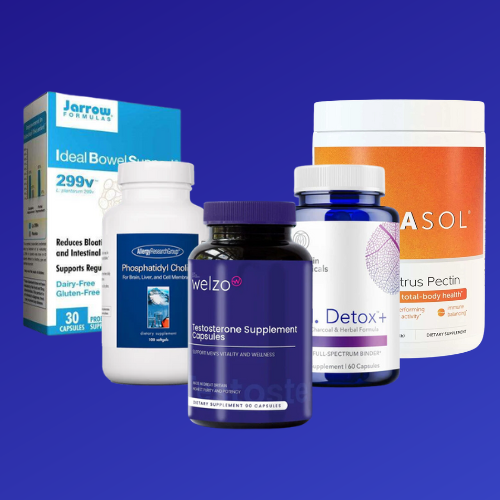
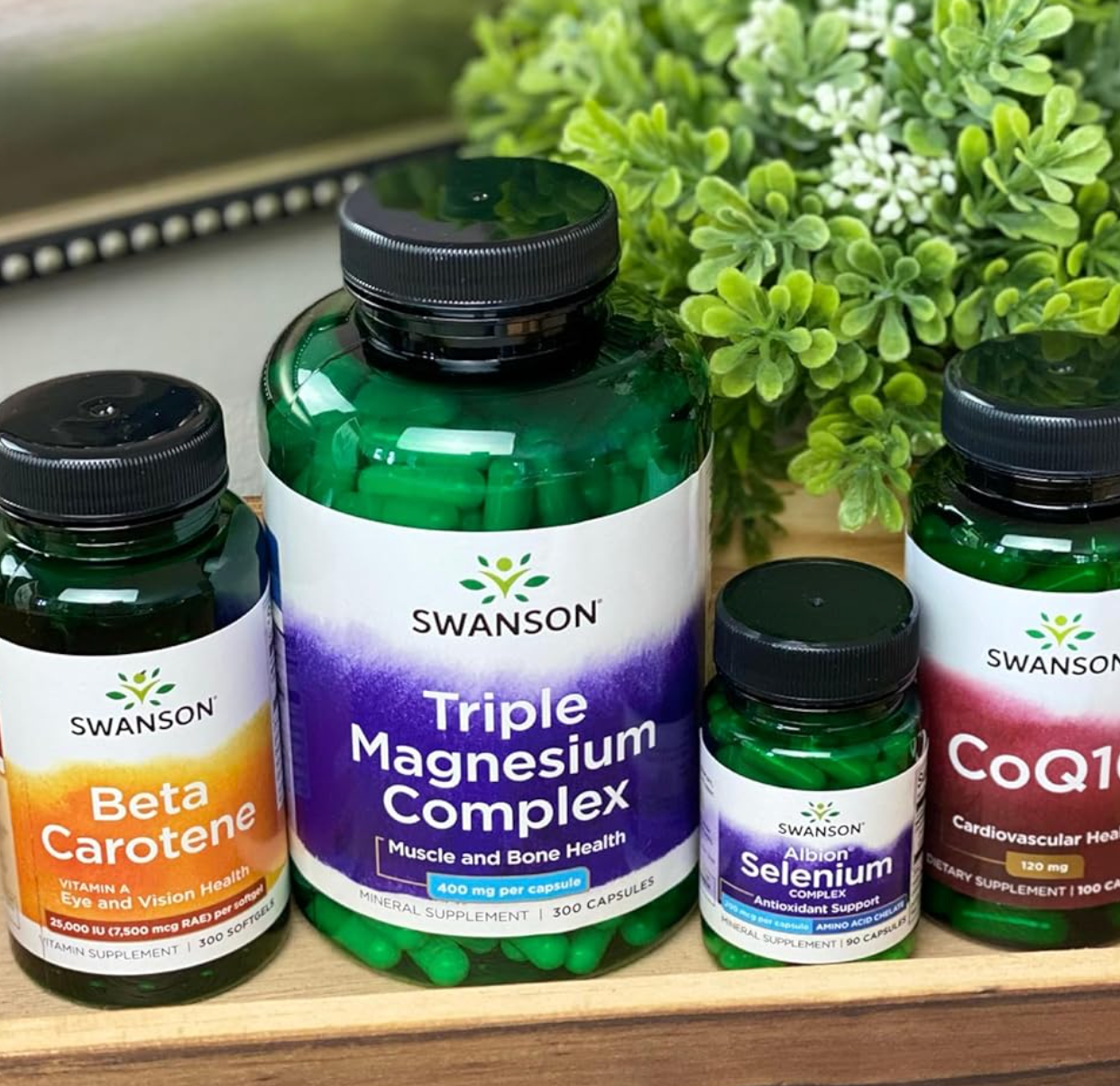




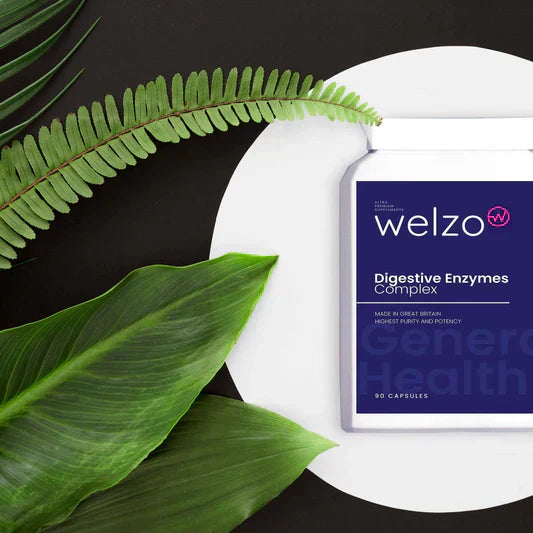





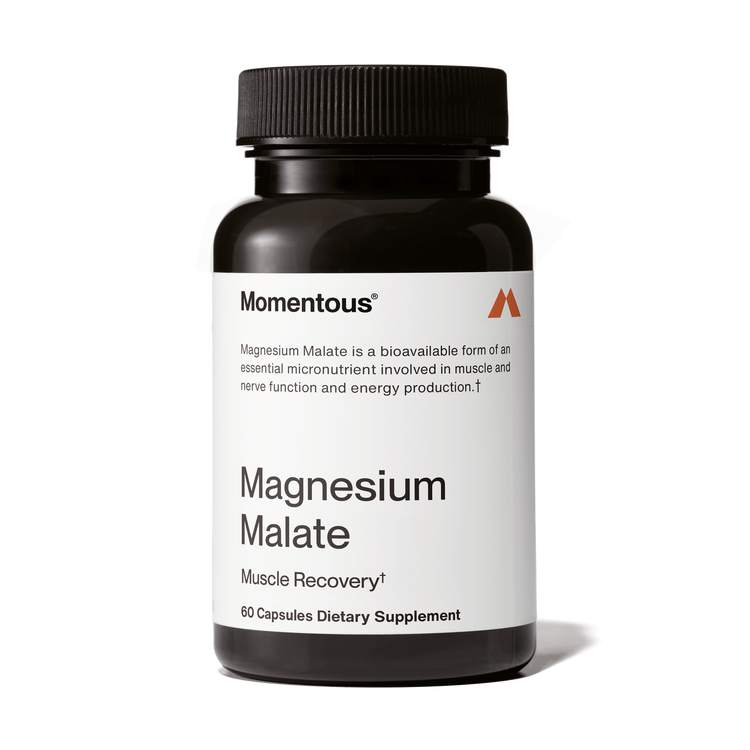
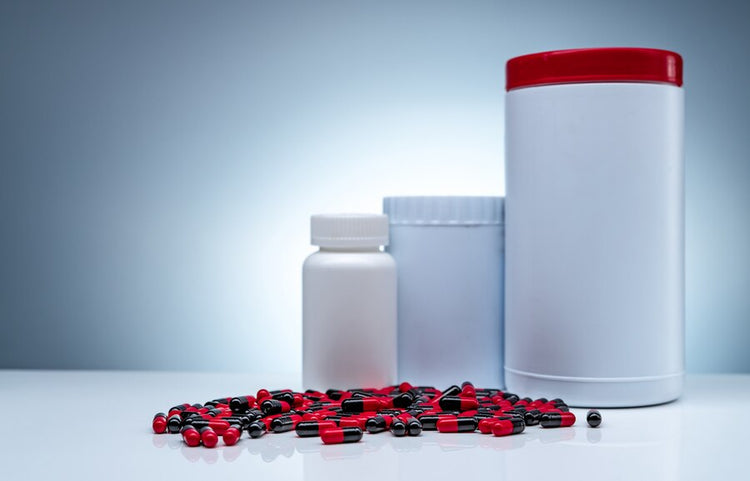
 Rated Excellent by 26,523+ Reviews
Rated Excellent by 26,523+ Reviews